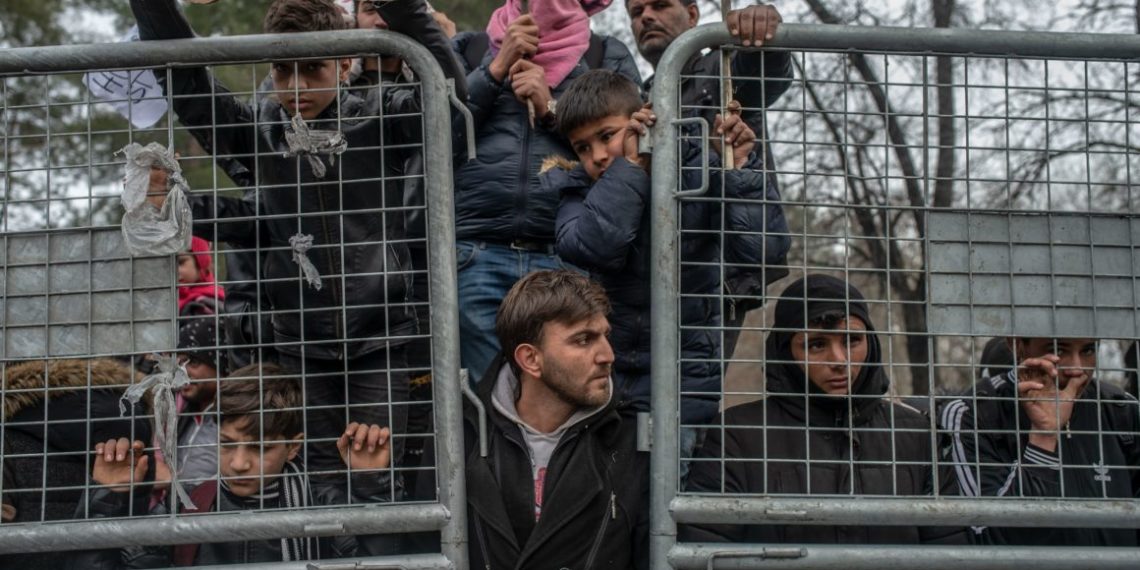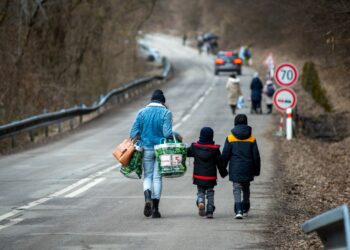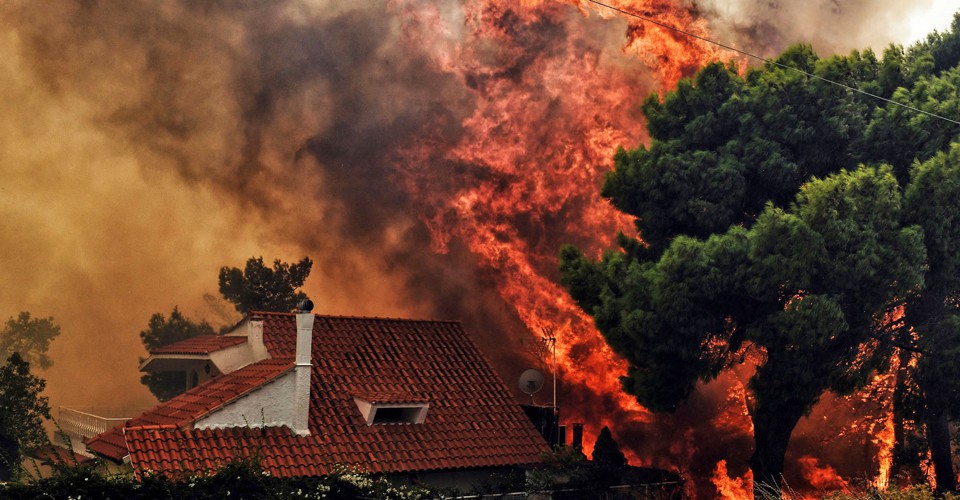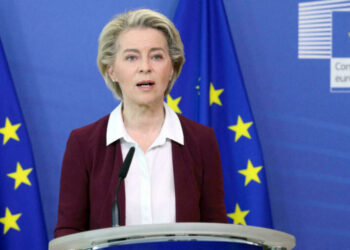A decline in migrant arrivals prompted E.U. leaders to declare an end to the “refugee crisis” in March 2019. But one year later, the crisis seems far from over.
Migrants crossing the Mediterranean from Libya toward Italy have continued to die at sea. The few rescue ships in operation have faced additional hurdles in bringing migrants to safe ports. On February 23, Italy agreed to admit 274 migrants rescued by the Ocean Viking only after quarantining the passengers, measures it has yet to apply to arriving tourists.
And beginning on February 26, Turkish President Recep Tayyip Erdogan used migrants to threaten European leaders and publics, warning that he was “opening the doors” to allow up to a million migrants cross into the European Union.
Migration Framed as Security Issue
Last weekend, as thousands of people reached Greek borders, E.U. leaders condemned Turkey’s tactics without questioning the narrative in which Erdogan packaged them. On Tuesday, Greek Prime Minister Kyriakos Mitsotakis said, “It is my obligation to safeguard the integrity of my country and this is exactly what I will do. The security of Greece and the security of Europe are my guides.”
Joint press conference in Greece with President @vonderleyen, @eucopresident Charles Michel, @EP_President David Sassoli, Prime Minister @kmitsotakis and Prime Minister @AndrejPlenkovic.https://t.co/Q8d7QVTghk
— European Commission (@EU_Commission) March 3, 2020
Speaking with him, E.U. Commissioner Ursula von der Leyen affirmed the premise that migrants represent a threat, praising Greece for serving as Europe’s “shield.”
This focus on migration as a security issue isn’t new. In response to the 2015 crisis, European member states prioritized stemming arrivals and blocking popular routes. They built walls, closed ports to rescue vessels, and passed border control responsibilities (and funds) to the key transit countries of Turkey (since 2016) and Libya (since 2017).
Border Policies That Enable Violence
Border externalization practices position would-be asylum seekers as political pawns, as the Turkish case shows. More generally, treating migrant arrivals as a threat can enable continued border violence.
Violent pushbacks along the Balkan route, a lack of official support for asylum seekers there, and the abandonment of migrants to death at sea or torture and imprisonment in Libya are often cited as deterrents to further arrivals. But closing borders necessitates that migrants fleeing conflict and extreme precarity travel along other, often more dangerous routes.
As the E.U. tasked Libya with intercepting migrants, it eliminated its own naval search and rescue and criminalized independently-operated rescue missions.
The overall number of crossings in the Central Mediterranean crossings has decreased, but the rate of death has remained high. Meanwhile, more people have crossed in the Western Mediterranean.
While these situations provoke empathy for some, the broader focus on irregular migration as a threat to European security and culture perpetuates associations of migrants with danger, illegality, and clandestine movement.
Asylum Trends in Europe
On February 26, the day Erdogan sent migrants to the borders, the European Asylum Support Office released its 2019 report, which offers an overview of asylum in Europe beyond the oft-circulated images of Greek camps.
With 714,200 total claims, 2019 figures are still “well below” those of 2015-16. Still, the report highlights a nearly 13 percent increase in total applications between 2018 and 2019, the first year-to-year increase since 2015 and one that can’t be explained by the Greek situation alone.
https://twitter.com/EASO/status/1232587505762996224
The report points to multiple shifts in who’s arriving and how. Consistent with previous years, the top two countries of origin were Syria (10 percent of the total) and Afghanistan (8 percent). Small but significant changes include a 33 percent increase in claims by Congolese asylum seekers (less than 2 percent of the total), reflecting a surge in conflict in the DRC. Many of these asylum seekers arrived via precarious journeys on foot or by boat.
But up to 25 percent of 2019 claims were filed not by “irregular migrants,” but by people who can enter Schengen countries without a visa. In particular, claims increased from Central and South American nationals, many of whom flew to Europe, entering Spain as tourists before requesting asylum. Venezuelans filed 45,000 claims – the third-highest number, and twice that of 2018.
Need for Protection
These numbers offer an important reminder that refugees and asylum seekers are defined by their need for protection and their right to seek it, not by their mode of entry to a country.
Bolstered by campaigns to protect the “European way of life,” political narratives that treat migration as a problem have reflected and fed heightened anti-immigrant sentiment, marked by the surge in populist right-wing parties and neo-Nazi groups in Germany, Greece, and elsewhere. These dynamics render circumstances especially difficult within local communities throughout Europe, despite ongoing efforts by grassroots and transnational activist groups who support and advocate for migrants.
Stalled processes don’t help. About one-third of case decisions granted some form of international protection, consistent with previous years. But at the end of 2019, more than 540,000 first-instance cases remained pending, a 20 percent increase from 2018 and one related to overwhelmed national asylum systems.
Migrants’ Wellbeing
European Union member states have repeatedly failed to revise the Dublin Regulation, which stipulates that migrants apply for asylum in the first E.U. country they enter. As primary arrival countries, Greece, Italy, and Spain have continued to process the bulk of asylum applications, assuming responsibility for housing asylum seekers and providing aid, obligations they have not always met.
In Greece and Italy, reception systems have exceeded capacity since early in the crisis. Migrants without access to aid may become homeless, as has been the case across Europe, including, recently, among Central American asylum seekers in Spain.
The Moria camp on the Greek island of Lesbos currently houses 21,000 people, seven times the intended number of residents. On March 1, following the weekend’s arrivals, Greece suspended asylum application processes for one month. It is unclear what recourse asylum seekers have in such circumstances.

A focus on border security has allowed the E.U. not only to avoid addressing migrant rights issues but to implement practices that undermine those rights.
In Kastanies, after von der Leyen and Mitsotakis made a case for protecting E.U. borders, David Sassoli, President of the European Parliament, instead called for a “shared European immigration politics that recognizes the rights of all people” and acts in generosity, rather than defense.
The situation in Greece, together with the continued arrivals of asylum seekers via multiple routes, illustrate once more the need for a different approach, and one that centers migrants’ wellbeing.
Disclaimer: The views and opinions expressed here are those of the author and do not necessarily reflect the editorial position of The Globe Post.






















